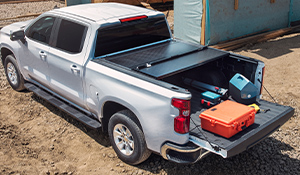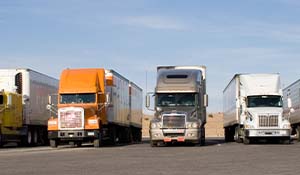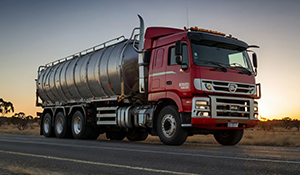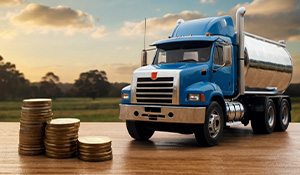REPORT - 2023 Dakar Rally
Words: Mike Ryan
Photos, Iveco and A.S.O.
The 45th edition of the Dakar Rally proved to be one of the toughest in the event’s history, but at the end of 15 days, Iveco came out on top in the Truck category (T5), with Boss Machinery Team De Rooy victorious and Eurol Team De Rooy third and fourth overall.
Dakar 2023 was an outstanding result for Iveco generally, with six of their trucks finishing in the top ten.

This year’s winning Iveco Powerstar was driven by Dutchman Janus van Kasteren, with Poland’s Darek Rodewald co-driving and Dutchman Marcel Snijders as mechanic.
While van Kasteren is a relative newcomer to Dakar, with only four previous starts, both Rodewald and Snijders are vastly experienced, with 27 rally raids between them. Rodewald was part of Team De Rooy and Iveco’s last T5 win in 2016, while Snijders has made ten starts in the car and bike categories, along with five in the trucks.
The trio’s first Dakar together was last year, where they finished fourth overall and were the first non-Kamaz truck home.

Kamaz Out
The chances of Team De Rooy, and indeed every other T5 entry in this year’s Dakar, was boosted by the withdrawal of the Kamaz teams that had won the class regularly since 2000 and every year from 2017 to 2022.
Following Russia’s invasion of Ukraine last year, sanctions and bans on Russian (and Belarussian) athletes across numerous sports included motorsport. Last March, the FIA set down special conditions that Russian/Belarus entries would have to adhere to in order to compete. These were considered unacceptable by the Kamaz-Master squad, which is crewed by Russians, so they announced their intention to withdraw soon after the FIA ruling, confirming the decision later in the year.

Czechs v Dutch
With the Russians out, this year’s Dakar was expected to be a fight between Dutch and Czech teams. In the Dutch corner, there was Team De Rooy, Kees Koolen’s Project 2030 (Iveco) and the Riwald Dakar Team (Renault), while flying the flag for the Czechs was MM Technology (Iveco), Instaforex Loprais (Praga), Fesh Fesh Team (Tatra) and Tatra Buggyra ZM Racing (Tatra).
Beyond van Kasteren in the Boss Machinery-sponsored #502 Iveco, the other Team De Rooy Ivecos included Martin van den Brink in #506 and his son Mitchel leading the team in truck #511. Twenty-year-old Mitchel was making only his third Dakar start, but Martin has 14 previous entries, with a best finish of sixth last year.

Of the two Riwald Dakar Team entries, both in Renault C460s, the #507 truck was led by Pascal de Baar, who had 15 previous starts and a best result of sixth in 2016. In the #538 sister truck, Adwin Hoondert was lead driver, and while he was experienced, those past Dakars were only in the South American editions.
Of the Czechs, Martin Macik would start his eleventh Dakar with Frantisek Tomasek co-driving and David Svanda as mechanic. Macik also had a newly-developed, Iveco-based prototype at his disposal for 2023, so was considered a warm favourite.

Macik also had five Top 10 finishes from his previous six starts, so if he piloted the #501 Iveco to victory, he would be the first Czech victor in T5 since Karel Loprais in 2001.
Speaking of Loprais, Karel’s nephew, Ales, was in the #508 Praga. Another driver with a lot of experience and multiple Top 10 finishes under his belt, Ales had long-serving mechanic Petr Pokora and young navigator Jaroslav Valtr Jnr alongside him in the Praga V4S DKR nicknamed ‘Lady’.
In total, 55 trucks would greet the starter in T5; part of a fleet of 355 vehicles and 603 competitors overall.

Week One in the Sun (and the Rain)
With 4,706km of timed special stages and 8,549km in total ahead of them for the 15-day marathon, the opening leg of the 45th Dakar - the fourth to be held in Saudi Arabia - would see competitors complete a loop of the ‘Sea Camp’ bivouac on the Red Sea coast, consisting of a 368km special and 603km in total.
Macik come out on top, after the Czech won the previous day’s Prologue that determined the starting order. Behind him on Stage 1 was Loprais and Mitchel van den Brink, with van Kasteren sixth.

The sand and stony trails that marked Stage 1 continued on Stage 2, with some tight passes through canyons that were even tighter for the trucks. The special was longer at 430km, but the overall distance was slightly shorter at 589km.
Van Kasteren was fastest over this special, but a subsequent time penalty dropped the #502 Iveco back to second behind Loprais (his first stage win since 2018), with Mitchel van den Brink third.
Macik had to replace four tyres in the sharp stones, which slowed him down, but not as much as locked brakes on the rear axle. Complications from this saw the Czech have to crawl his Iveco through a large portion of the stage, ultimately finishing eighth on the day and more than an hour behind the leaders.

You don’t expect to encounter rain in the desert, but that’s exactly what everyone encountered on Stage 3 from Alula to Ha’il; a 670km day with 447km of timed special. The rain brought flash flooding that wasn’t deep, but still trapped competitors in other categories. Van Kasteren, Macik and Loprais all stopped to rescue stranded buggies from the fast-flowing water.
After a nightmare Stage 2, Macik’s prototype Iveco was flying on Stage 3, winning ahead of Mitchel van den Brink, despite having to stop.
Stage 4 (414km special, 577km total) was dry, but the drama didn’t pass with the rain. High dunes challenged the competitors and clumps of camel grass pounded them, while the track through rocky sections was very tight at times. Macik prevailed in these conditions, despite broken front springs, winning again ahead of Mitchel van den Brink and moving up to fourth overall.

Loprais retained the rally lead after this stage, ahead of Martin van den Brink, with Valtr third overall in the Tatra Phoenix and van Kasteren fifth.
Winning stages and gaining ground each day after Stage 2’s disaster, Macik took some confidence into Stage 5 (374km special, 649km total); a mostly sandy day, but it was Loprais and Martin van den Brink who would fight it out for the win.
The Stage 5 win went to Loprais by only 16 seconds, which meant he retained the overall lead ahead of van den Brink senior, while van Kasteren moved up to third at the expense of van den Brink junior.

Challenge of the Dunes
Flooding saw Stage 6 shortened from the original 567km to 467km (876km overall). Starting at Ha’il and ending at Al Duwadimi, the stage made up entirely of sand and big dunes meant navigation was the challenge. However, by the time the trucks come through, the path has usually been well marked by the preceding categories.
Mitchel van den Brink and van Kasteren ran neck-and-neck on this stage; victory just going to the former, while Martin van den Brink capitalised on Loprais’s misfortunes to take the overall lead, but by only 37 seconds. Both van Kasteren and Macik had moved their Ivecos closer to the overall leaders this day, 26 and 30 minutes adrift, respectively, and up to third and fourth.

The flooding that had impacted the previous days saw Stage 7 cancelled for the Bikes and Quads, while the other categories had the route replaced with what would have been Stage 8. In a day consisting mostly of sand, van Kasteren took his first ever Dakar stage win, ahead of Loprais and Martin van den Brink, with the #502 Iveco now only 22 minutes from the lead.
A further 20 minutes back in the overall, Macik finished Stage 7 in seventh, while Valtr, who lost ground on the previous stages with suspension failures, climbed to fifth in the overall after achieving the same finish on the day’s stage.

Swapping Stage 7 and 8 due to the rain meant that the final stage before the mid-rally rest day was a 398km special (700km total), of sand, sand and more sand, finishing in the Saudi capital, Riyadh.
The recent rain meant the sand was firm, so delays through being bogged were few. Macik took the stage win, his third of this year’s Dakar, ahead of Mitchel van den Brink and Loprais, who regained the overall lead on an increased margin of 16+ minutes going into the rest day. Van Kasteren retained his third place, but was now 38 minutes adrift of the lead.

Rest and Return
Shorter stages in the second week of the 2023 Dakar may have lulled drivers into a false sense of confidence, but some of these stages would be in Saudi Arabia’s ‘Empty Quarter,’ which, as the name implies, has very little in it apart from endless sand dunes stretching over 1,000km in length and 500km in width.
The first challenge after the rest day was Stage 9’s 358km special (686km total) that started in rocks and flooded wadis before transferring to sand dunes.

The muddy wadis bogged Macik, Martin van den Brink and others, with the two contenders losing around 45 minutes each, but van Kasteren avoided the quagmire to win the stage and move his #502 Iveco up to second in the overall standings.
Stage 10 was the drivers’ true introduction to the Empty Quarter; a significantly shorter 114km special (622km total) with soft, dry dunes that challenged all and sundry. Van Kasteren could only manage third fastest on this stage, behind de Baar’s Riwald Dakar Renault and Mitchel van den Brink.

The bigger story out of Stage 10 was the withdrawal of Loprais; the Czech exiting the rally after being informed his Praga had hit a spectator on Stage 9 who later died.
This meant van Kasteren inherited the overall lead, with Martin van den Brink and Macik now in podium positions – an Iveco clean sweep. The younger van den Brink was fourth and more than an hour behind Macik, but had Valtr on his tail, so had to keep pushing.

Marathon Minimilasm
An extra challenge for Stage 11 (273km special, 424km total) was that this would be a ‘marathon’ stage, meaning entrants had to perform all maintenance themselves and could not call on their service crews – not a problem for the multi-skilled T5 teams, but a potential rally-finisher for other classes.
Across dry lake beds and over some amazing – and tall - sand dunes, van Kasteren was now driving with the overall win in mind, so was happy to let de Baar and Macik finish ahead of him on this stage. He wasn’t so happy to see Martin van den Brink win the stage – the Dutchman’s first for 2023 – that closed the margin between first and second in the overall to just 1 minute and 12 seconds. That’s nothing in Dakar terms.

After a night under the stars with minimal comforts as part of the marathon bivouac, the rally rolled into Stage 12 (185km special, 373km total) and rolled out of the Empty Quarter, with more sand and more dry lake beds en route to the day’s conclusion at Shaybah.
Valtr and Mitchel van den Brink got caught in the dunes this day and Macik experienced mechanical dramas, but van Kasteren’s charmed run continued, winning the stage and extending his lead in the overall to more than 30 minutes with just two stages remaining.
The penultimate stage of Dakar 2023 saw more dunes and also saw the end of Martin van den Brink’s chances of victory. The Dutchman’s #506 Iveco suffered gearbox problems and would finish 19th on the stage, elevating Macik to second overall after the Czech won the day.
Despite finishing second on the stage, van Kasteren’s lead was now more than an hour and Ivecos filled the first four places with just the fourteenth and final “ceremonial” stage remaining.

Dutch Treat
Fifteen days and fourteen competitive stages came to an end with a short 124km special and 270km liaison from Al-Hofuf to Damman on the Persian Gulf coast. A flat track meant the route wasn’t overly challenging, but muddy conditions meant it wasn’t a cakewalk, either.
With the win assured if he drove sensibly, van Kasteren cruised to the end of the stage, then jumped out of the #502 Iveco to celebrate with his team. The 36-year-old joins Hans Stacey, Gerard de Rooy and Jan de Rooy as Dutch winners in T5.
“If you want to fight for a Dakar podium you need to take some risks,” van Kasteren said ahead of the rally. “Every day you think about ‘that hole’ or ‘that jump’. It’s a crazy sport, but I love the adventure - and the speed!”
After the rally, van Kasteren added: “De Rooy built a great truck that won the Dakar three times – Gerard two times and Jan one time. It’s amazing to have that same feeling now.”

Ivecos filled the first four places, with two more in the top ten. The 2023 win means Iveco now has three outright victories at Dakar (De Rooy’s first was in a DAF) and 51 stage wins – second only to Kamaz in T5.
“Participation and ongoing success in the Dakar Rally confirm the reliability of Iveco trucks and the brand’s commitment to research, development and testing in extreme environments,” said Iveco ANZ Managing Director, Michael May.
“Iveco has one of the strongest off-road ranges available in Australia, with buyers able to choose from a wide selection of vehicles spanning the light, medium and heavy-duty weight classes.
“Iveco is gaining a stellar reputation in demanding off-road motorsports and local buyers of our trucks should be buoyed in the knowledge that our vehicles are making an impact and proving themselves in the world’s toughest environments.”
2023 Dakar – T5 Top 10
Pos Crew Team Truck Time
1. Janus van Kasteren Boss Machinery Team De Rooy Iveco 54h03m33s
Darek Riodewald
Marcel Snijders
2. Martin Macik MM Technology Iveco 55h18m07s
Frantisek Timasek (+ 01h14m34s)
David Svanda
3. Martin van den Brink Eurol Team De Rooy Iveco 56h43m55s
Erik Kofman (+ 02h40m22s)
Rijk Mouw
4. Mitchel van den Brink Eurol team De Rooy Iveco 58h06m02s
Jarno van der Pol (+ 04h2m29s)
Moises Torrallardona
5. Jaroslav Valtr Tatra Buggyra ZM Racing Tatra 59h09m42s
Rene Kilian (+05h06m09s)
Tomas Sikola
6. Martin Soltys Tatra Buggyra ZM Racing Tatra 63h12m16s
Roman Krejci (+ 09h08m43s)
David Hoffmann
7. Ben van de Laar Fried van de Laar Racing Iveco 64h52m59s
Jan van der Laar (+ 10h49m26s)
Adolph Huijgens
8. Richard de Groot Firemen Dakar Team Iveco 67h48m48s
Mark Laan (+ 13h45m15s)
Jan Hulsebosch
9. Thomas Vratny Fesh Fesh Team Tatra 68h27m25s
Bartolomiej Boba (+ 14h23m52s)
Jaromir Martinec
10. Teruhito Sugawara Hino Team Sugawara Hino 72h58m33s
Hirokazu Somemiya (+ 18h55m00s)
Yuji Mochizuki













